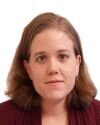Advances in Bioprocessing Industry case studies on single-use, flexible and continuous bioprocessing
At Repligen bioprocessing seminars, thought leaders and professionals from around the world meet and review exciting new drivers of bioprocessing efficiency, learn from adopters of transformative technologies, evaluate risk landscapes and collaborate to help set the standards of modern bioproduction.
Agenda
Registration and Coffee
Welcome and Overview
Transformative Single-use Technologies: New Solutions and Lessons Learned
Jean Bender, Senior Director, Medlmmune
Abstract
As most large biotechnology company product portfolios are expanding beyond Mabs to include creative molecular formats, today’s process development scientist must also reach for adaptive and flexible separation and purification technologies. Technologies must enable continuous production for non-stable molecules; contain single-use components to avoid cleaning or cross-contamination and be scalable and cost effective to support the product lifecycle from early stage clinical to commercial production. This talk will illustrate MedImmune’s experience with integrating single-use and continuous processes to demonstrate the potential opportunities and gaps for implementation into novel molecule production.

Speaker Bio
Jean Bender is the Senior Director of the BioProcess Engineering department at MedImmune. The BPE department has three main functions: an R&D pilot plant team for material generation and process scale-up assessment; a technology team responsible for transferring processes from development to clinical and commercial manufacturing and an engineering team focused on evaluation and implementation of novel technologies. Prior to joining MedImmune in 2011, Jean worked for 19 years within the purification process development and process engineering groups at Genentech. She holds a BS and MS in Chemical Engineering.
To view this presentation, please contact [email protected].
Performance and Economic Advantages of Implementing Single-use TFF
Michael LaBreck, Director, TangenX Products, Repligen
Abstract
Implementation of single-use alternatives in tangential flow filtration (TFF), a critical step in concentration and diafiltration (buffer exchange), is becoming platform in downstream bioprocessing. Repligen TangenX™ SIUS™ Single-use Cassettes are the first purpose-built cassettes designed for tangential flow filtration. This presentation will demonstrate how deploying these innovative cassettes can help reduce filter cost by 80%, reduce labor costs by 50%, and reduce buffer and water usage by 75% when compared to traditional reusable cassettes.

Speaker Bio
Michael LaBreck is Director for Repligen TangenX™ TFF products at Repligen starting in December 2016. Before that, he supported the TangenX™ product line at NovaSep 2008- 2016. He has over 20 years experience with tangential flow filtration applications support in the biopharmaceutical industry. He has held various sales and applications engineering positions with Pall Corporation and GE Healthcare. Michael has a Bachelor of Science degree in Mechanical Engineering from Syracuse University.
Break
Novel Filtration Solutions for Gene Therapy
Peter Lynch, Associate Scientist, Process Development and Commercialization, WuXi AppTec
Abstract
TangenX™ SIUS™ Single-use TFF Cassettes allowed WuXi AppTec to meet client CQA needs while maintaining high product yields and limiting processing time and footprint. Optimization experiments established TMP ranges, feed flux, and initial target concentration. These parameters then were utilized during verification runs at a 30 x HYPERstack scale with >90% recovery.

Speaker Bio
Peter Lynch joined WuXi AppTec in 2014 after graduating from Thomas Jefferson University with a MS Degree in Bioscience Technologies. As a member of the Process Development and Commercialization team, he is focused on design of experiments for downstream unit operations supporting internal projects and client programs to manufacture cellular and viral vector therapies.
Conversion of Adhesion Cell Line to Suspension Perfusion
Kory Blocker, Scientist, Cell Culture Development, Patheon
Abstract
Utilizing perfusion in cell culture production can enable improved productivity and molecule quality. The redevelopment of a microcarrier process to a suspension culture will be detailed.

Speaker Bio
Kory Blocker graduated with her PhD in Chemical Engineering from University of Delaware where she studied gene delivery methodologies. She subsequently went on to Tulane University as a Post-doctoral researcher and worked on genetic modifications to yeast and mammalian cells for applications in the biofuel and pharmaceutical industries. Following completion of the Post-Doc at Tulane University, she joined Patheon Biologics as a scientist working in Upstream Process Development.
Lunch and Networking
What's New in Pre-packed Chromatography Technology
Christine Gebski, Vice President, Product Management and Field Applications, Repligen
Abstract
With an innovative side port that allows for simple resin unpacking, OPUS® 45R and OPUS® 60R columns provide the ultimate flexibility in pre-packed column technology. Without compromising chromatographic performance or column cleanability, the new feature helps mitigate the risk of implementing pre-packed columns in cGMP settings, and allows for re-use of the unpacked resin for other purposes. Test results on chromatographic performance, bioburden testing, shipping tests and simple unpacking procedure will be presented.

Speaker Bio
Before joining Repligen in 2015, Christine Gebski was Head of the POROS® Business Unit within the Bioproduction Division of Applied Biosystems/LIFE Technologies/Thermo Fisher Scientific, working with purification products, including POROS® and CaptureSelect® chromatography resins. She managed Global Process Chromatography Applications for ten years, developing collateral and providing technical support, supporting new product development and manufacturing process improvement efforts. She also managed R&D, developing and commercializing three new chromatography resins. Before joining LIFE Technologies, Ms. Gebski was a Process Development Scientist for 15 years in the biotechnology industry, with roles in both development and engineering functions, including developing, scaling, transferring and validating downstream purification processes. She received a B.S. in Biology from the University of Vermont and a M.S. in Biotechnology from the University of Massachusetts at Lowell.
Intensification of a Multi-Product Perfusion Platform thrpough Medium and Process development
Shawn Barrett, Associate Scientific Director, Sanofi Genzyme
Abstract
Sanofi has previously demonstrated that an in-house chemically defined medium can support cell densities exceeding 100 million viable cells/mL in 10L perfusion bioreactors with an average productivity of 2 g/L/day. Further optimization utilizing high throughput technology specifically tailored to improve cell specific productivity (SPR) resulted in an intensified medium that is capable of achieving greater than 2X increase in SPR while maintaining low cell specific perfusion rate (CSPR). In this talk, recent case studies on the application of this intensified perfusion platform to cell lines producing different classes of biologics will be described, effects on product quality will be illustrated, and engineering and economic considerations for commercial scale will be discussed.

Speaker Bio
Shawn Barrett is Associate Scientific Director of USP in the Continuous Manufacturing Skill Center at Sanofi Genzyme in Framingham, MA. He has more than 20 years of experience at various organizations in the biopharmaceutical and biotech industry, including Life Technologies BioProduction R&D, Centocor J&J R&D, Eli Lilly BioRTP, and NRC Biotechnology Research Institute. His bioprocess expertise includes perfusion and fed-batch cell culture process development and scale-up, cell culture medium development, bioreactor and facility design, and process control. Shawn currently leads a team of scientists and engineers tasked with the optimization and intensification of a perfusion platform for the enablement of integrated continuous manufacturing of protein therapeutics. He received his Bachelors of Applied Science in Chemical Engineering from the University of Waterloo in 1994.
Break
The Need for Speed: Leveraging High Throughput to Accelerate Time to Clinic
Juan P. Cueva, Associate Scientist, Process Biochemistry, Biogen
Abstract
This presentation focuses on a case study where a mammalian cell culture process producing mAb A was developed almost exclusively utilizing high-throughput (HT) technology. The study describes how HT systems such as microbioreactors for cell culture development and Repligen OPUS® Process Development columns driven by robotics for purification development were integrated to rapidly develop a robust production process that was then directly scaled-up for cell culture and purification steps to generate material for investigational new drug-enabling toxicology studies. Performance comparability across scales demonstrates the effectiveness of HT process development for accelerating the time to clinic.

Speaker Bio
Juan Cueva is currently a Downstream Process Development Scientist with Biogen at the Research Triangle Park (RTP) facility in North Carolina. He has over six years of experience collaborating with multidisciplinary teams in the biopharmaceutical industry incurring in areas such as technology transfer, bioprocess design, scale-up and optimization, and sensing and control of upstream and downstream unit operations. Lately, he has been involved with high throughput technologies to accelerate and improve process development efficiency ahead of clinical production. Juan obtained his Bachelor of Science degree from Escuela Politécnica del Ejército (ESPE) in Ecuador. Then, he was awarded a National Science Foundation Fellowship to complete his Master of Science degree in Biomanufacturing at the Golden Leaf Biomanufacturing Training and Education Center (BTEC), NC.
Use of the XCell™ ATF in the Manufacture of Suspension Lentiviral Vector
Jesse Milling, Scientist II, bluebird bio
Abstract
Overview of scaling of the XCell™ ATF from bench-scale to 250 L bioreactor scale for lentiviral vector production. Key features include how the XCell™ ATF has been implemented into a transient transfection based process and scaled up with single-use application end-goal in mind.

Speaker Bio
Jesse Milling is currently Scientist II with bluebird bio at the Cambridge, MA facility. Before joining bluebird, Jesse was an integral member of the Cell Culture Process Development Unit at Eleven Biotherepeutics. Jesse started his career in the Cell Culture Process Development and Manufacturing team at Acceleron Pharma. Jesse received his Bachelors of Science in Biology from St. Anselm College and a Master of Science in Biology from Tufts University.
Multi-column Continuous Capture Chromatography; New Data Confirms Significant Savings and De-bottlenecking Opportunities
Kathleen Mihlbachler, Global Director Separations Development, LEWA
Abstract
This presentation focuses on recent pilot scale results from GMP facilities. Comparisons to conventional batch show multi-column process in the capture step using a 2-column design proved to reduce resin consumption by over 60%, with 30% savings in buffer. With a nearly 3X productivity gain the customer could anticipate a seven figure savings at scale or effectively elevating strains placed on their downstream capacity by ever increasing upstream efficiencies. Results from several full scale pilot runs at multiple mAb manufacturers will be presented. Comparison between bench scale and production size units will show reliable scale-up. A brief overview of multi-column system designs will help define the options available.

Speaker Bio
Dr. Kathleen Mihlbachler is currently the LPT Global Process Separations Director leading the verification of chromatographic technologies and development of new approaches to optimizing chromatographic separations. She has worked for more than 15 years in the area of process chromatography, Dr. Mihlbachler supported the technical transfer of process chromatographic technology from Bayer Technology Services (BTS) and ChromaCon AG (multi-column chromatography) to LEWA and presently acts a technical consultant on leading edge customer projects. Prior to this Dr. Mihlbachler worked at different levels as Sr. Researcher in the pharmaceutical industry at BMS, Eli Lilly, and Pfizer. She was involved in the development, scale-up and manufacturing of purification/separation processes for chiral and non-chiral compounds, peptides and proteins, in particular to implement continuous processes. From 2011-2013 Dr. Mihlbachler taught undergraduate courses for chemical and biomedical students as a Sr. University Lecturer in the Department of Chemical, Biological, and Pharmaceutical Engineering at New Jersey Institute of Technology. Starting in 2014 Dr. Mihlbachler holds a Director position at the AICHE’s Separation Division. She is also a member of the Scientific Committee of the International Symposium on Preparative Chromatography since 2007 and since 2010 she has chaired the Poster Award Committee in addition to co-instructing workshops on “Preparative chromatography of pharmaceutical intermediate and API” at their annual symposium. Dr. Mihlbachler authored two book chapters on chromatography and she published her research results in numerous peer reviewed articles and external presentations at international meetings.
Reception and Networking
Discover More Seminars/Technical Roadshows